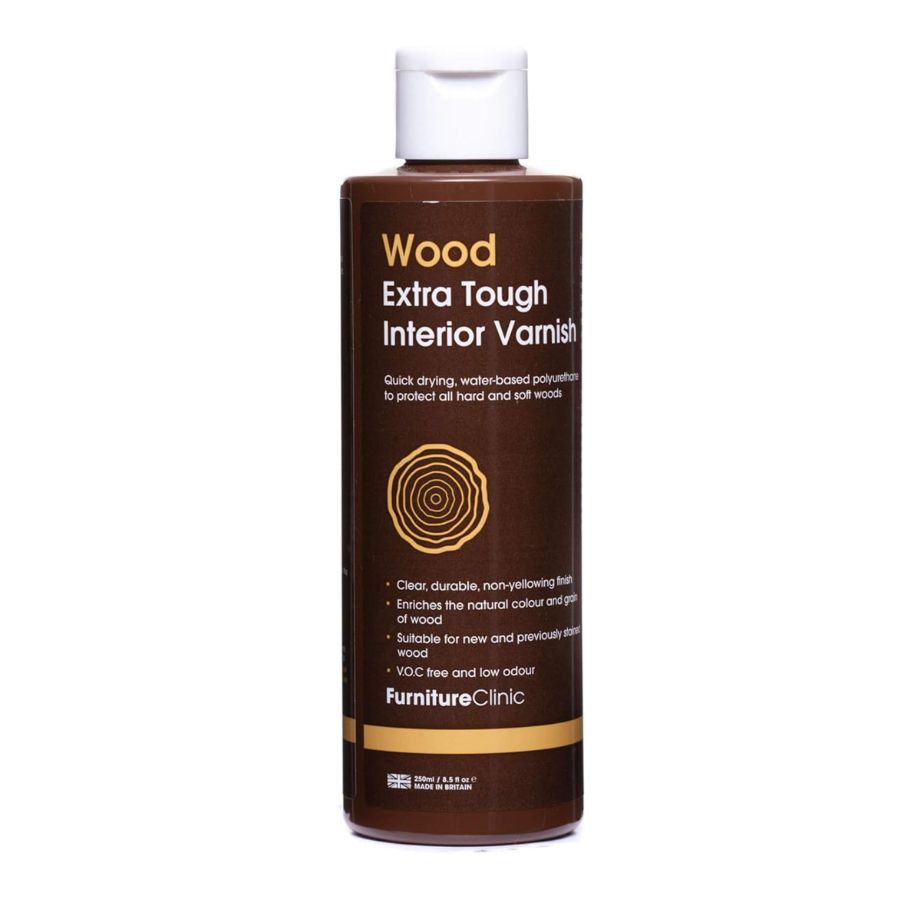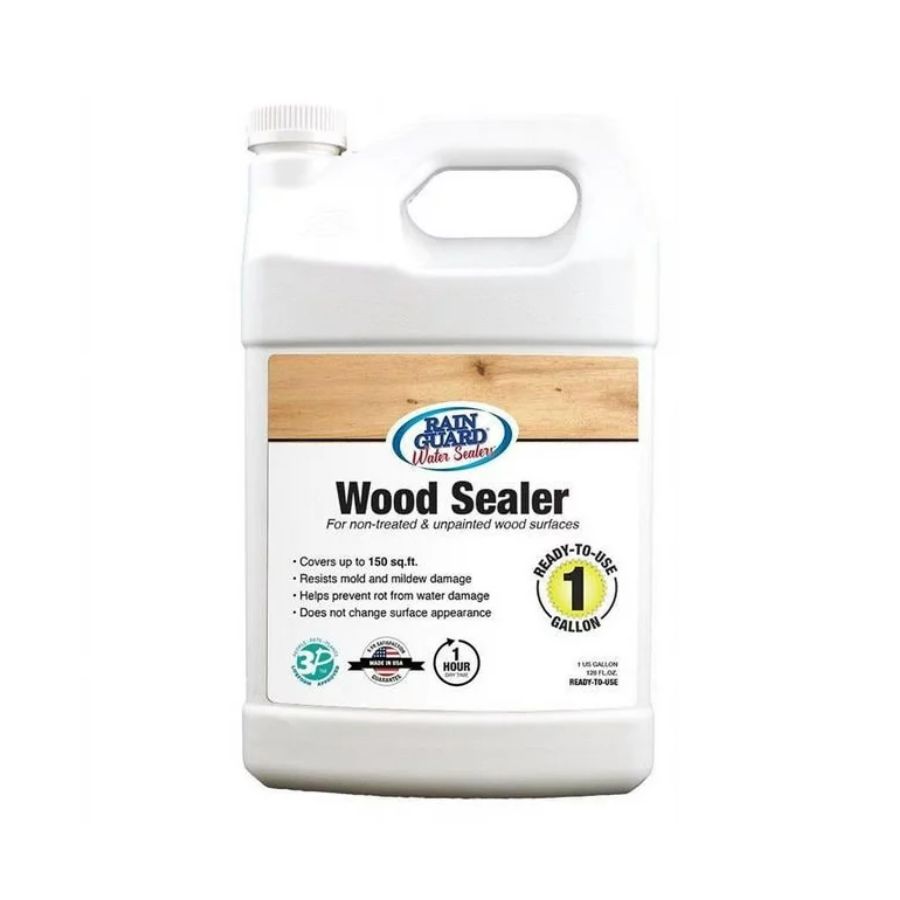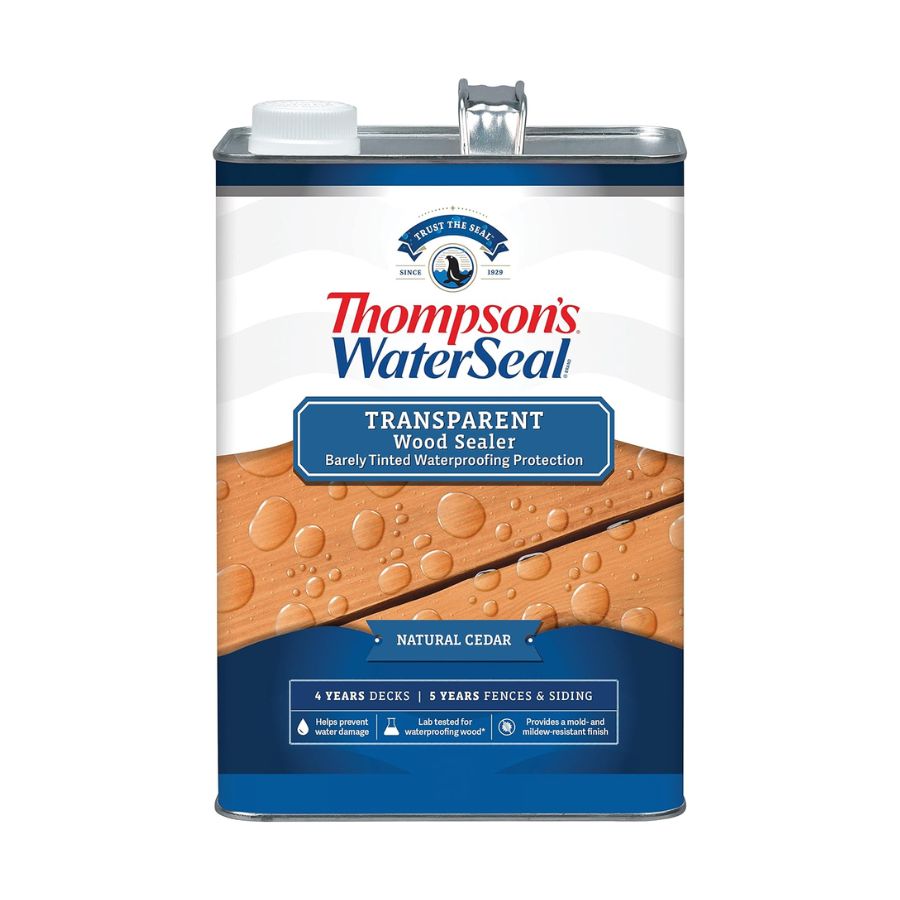Should you Use Wood For Your Kitchen Backsplash? Experts Agree on the Best Approach
Wood brings warmth to any room, but is it the best material to use for a kitchen backsplash? We speak to the pros to find out
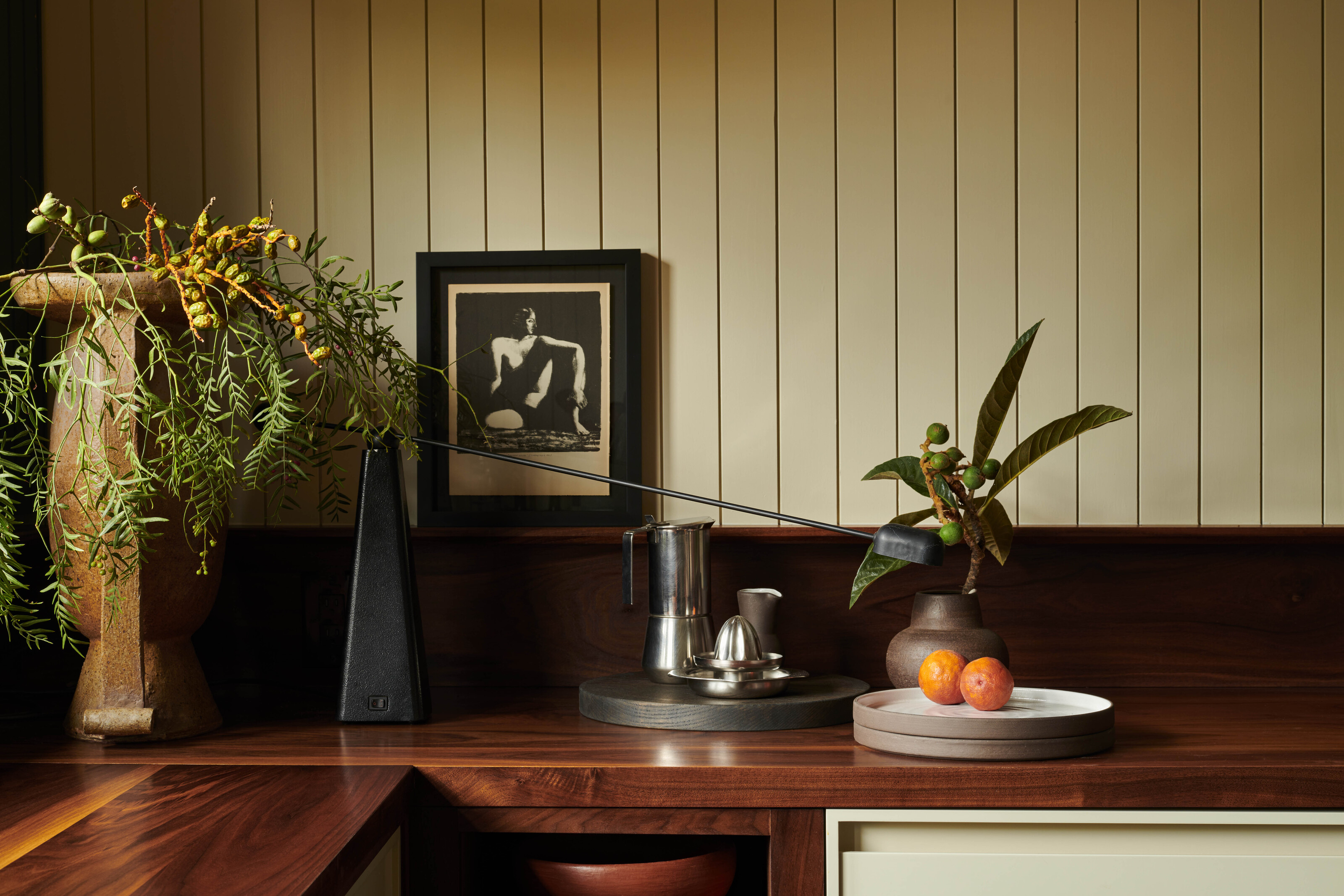

Wood kitchens offer a stylish and classic look and have been dominating for years. The material complements virtually any interior design style, and the natural beauty of wooden cabinets, flooring, and shiplap paneling delivers a timeless quality that feels homely, cozy, and familiar.
While wood is commonly associated with a more rustic kitchen aesthetic, more and more, we're seeing designers embracing the material in a contemporary setting, using wood to drive a sleek Scandinavian style or a mid-century look. Wood splashbacks are less common as designers and homeowners tend to favor ceramic tile, marble, or metals like stainless steel. But wood offers an interesting alternative.
The problem is that it doesn't come without risk and it seems that wood's natural properties are what give it its advantage, but are also the cause of its pitfalls. To get to the bottom of whether we should be bringing this material to our own modern kitchens and using it for splashback, we speak to the designers who know best.
What are the benefits of a wood backsplash?
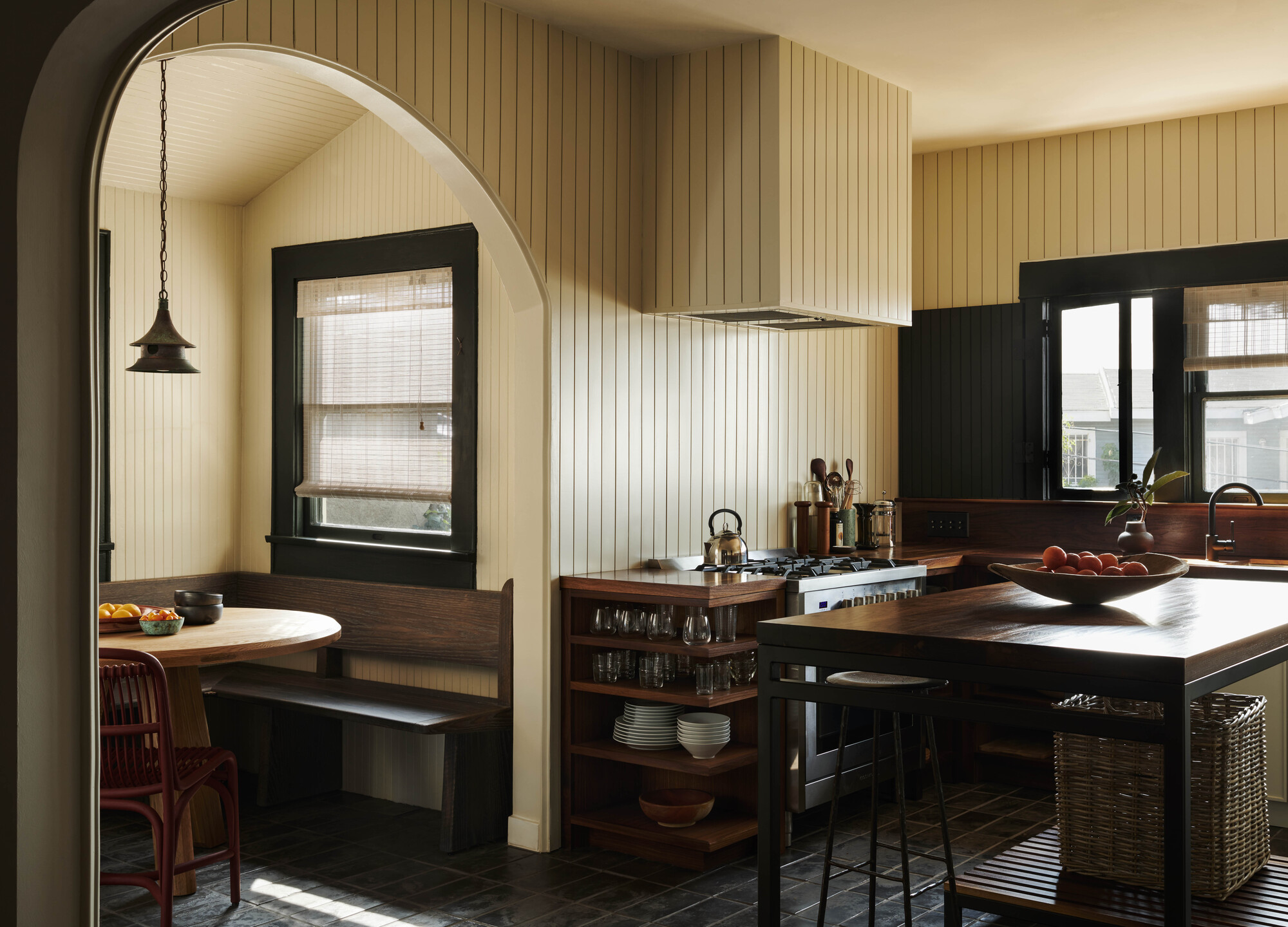
Wood is a fantastic material for the home, celebrated for its natural grain, hygienic properties and - if harvested in the right way - sustainability credentials. Nothing creates warmth and coziness in the home quite like wood, and the same goes for the kitchen. 'Natural wood always makes a kitchen look great: walnut or white oak are both great choices to set off your cabinetry,' says Luki Anderson of Studio Officina Architecture.
In recent years lighter white oak has been selected, driving a Scandi vibe, while darker woods like walnut are used to enhance a mid-century modern kitchen palette. ‘We suggest light and natural woods to keep things from feeling too heavy,' says Carola Pimentel, the founder of Assure Interiors, an award-winning Miami-based practice.
Wood is commonly used for kitchen flooring and for kitchen cabinets, and is a more unusual material for backsplash, but get it right and the effect can be beautiful, delivering real warmth and comfort. In terms of material, shiplap is a popular way to weave in this material, bringing understated texture to a small backsplash. Shiplap is typically made from plywood or MDF, making it an inexpensive idea for backsplashes. It is treated with a sealant, then a varnish before being stuck onto the wall with adhesive.
Is a wood backsplash dangerous?
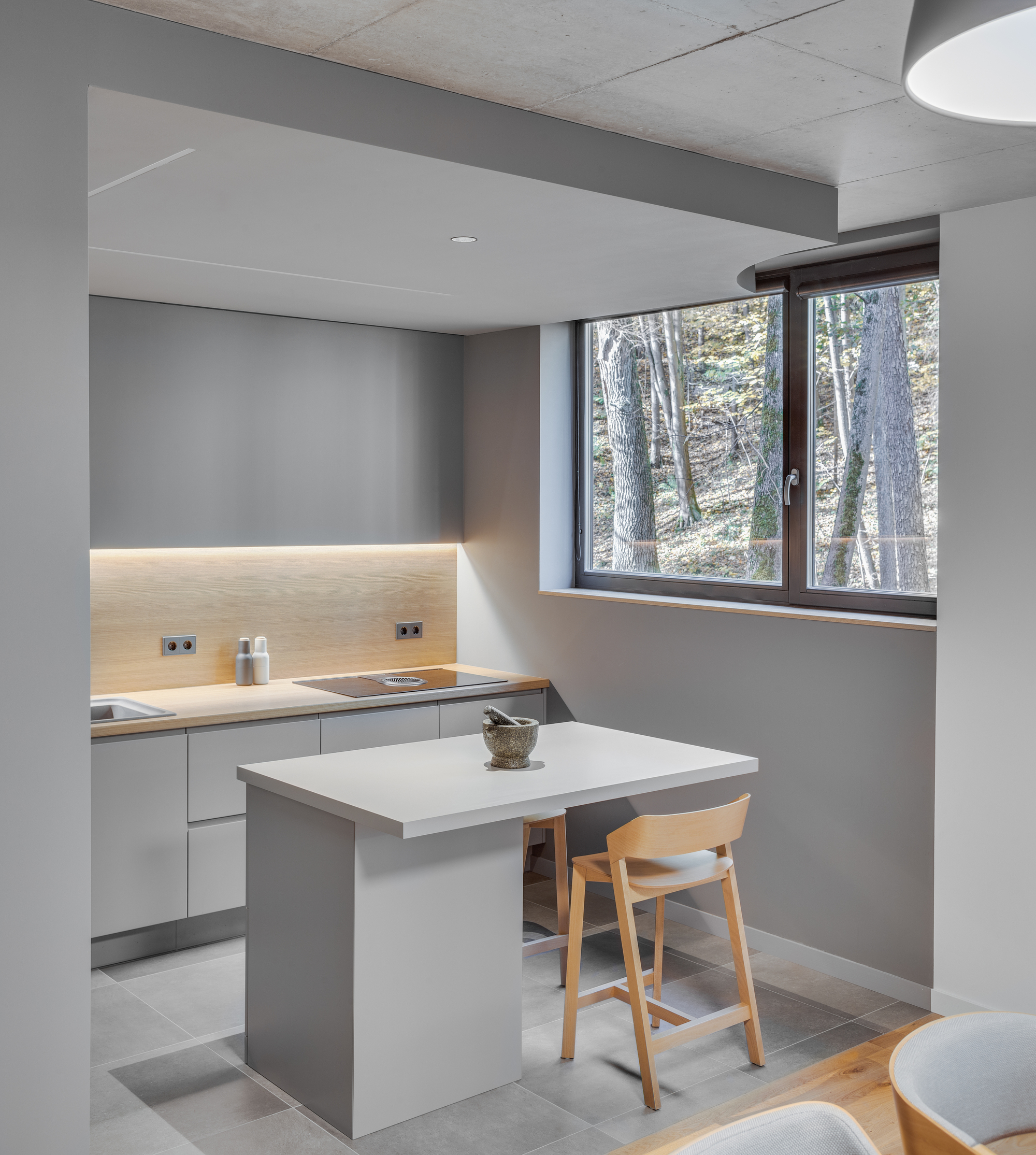
It's a well-known fact that wood is flammable, so bear this in mind when considering your backsplash and consult your local fire codes. Your backsplash must be around 18 inches away from the stove burners to avoid the risk of fire.
It's for this reason that Shelagh Conway, principal and founder of Austin-based Triple Heart Design would advise against a wood backsplash: ‘I would not recommend wood backsplash in the working part of the kitchen around the range or sink for combustibility and clean-up reasons,’ she says. Shiplap or beadboard is beautiful in a pantry or coffee bar and provides a different visual texture.’
Is wood easy to maintain?
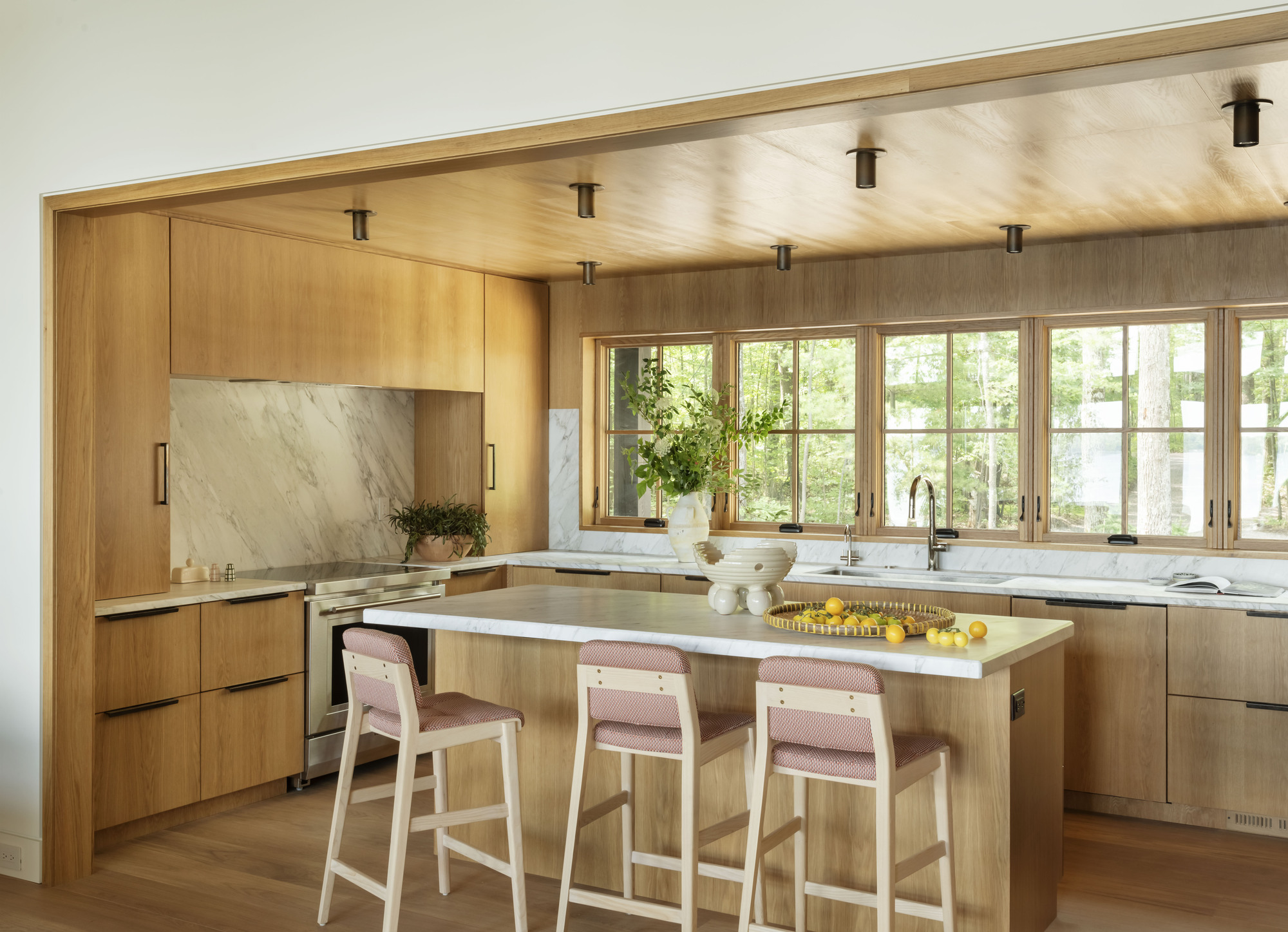
For interior designer, Amy Kalikow of Amy Kalokow Design, it's a question of cleanliness and durability. 'The kitchen is my sacred place, so cleanliness is a must,' she says. 'As cooking is a messy business, a wood backsplash would not stand the test of time.'
Lauren Lerner, CEO and founder of Scottsdale-based Living with Lolo agrees: 'I would not recommend using wood as a kitchen backsplash. It's important to choose materials that can withstand heat and moisture without warping or other issues,' she says. 'Opting for materials that are heat-resistant and water-resistant is a smarter choice to ensure durability and longevity.'
If you do settle for a wood kitchen backsplash, consider that it might demand a high level of maintenance to keep it ticking over. Make sure to treat and seal your backsplash before it's installed and refinish it as and when.
Glossy paints are easy to clean, and polyurethane helps preserve that wood look. A spray-on conversion varnish over stained wood is a great way to ensure durability. Finally, always have a small towel to hand to wipe off that excess moisture and water. This prevents mold and discoloration over time.
The backsplash and countertop in this example by Patrick Bernatz Ward is a salvaged black walnut slab with an oiled finish.
How to get the look without wood
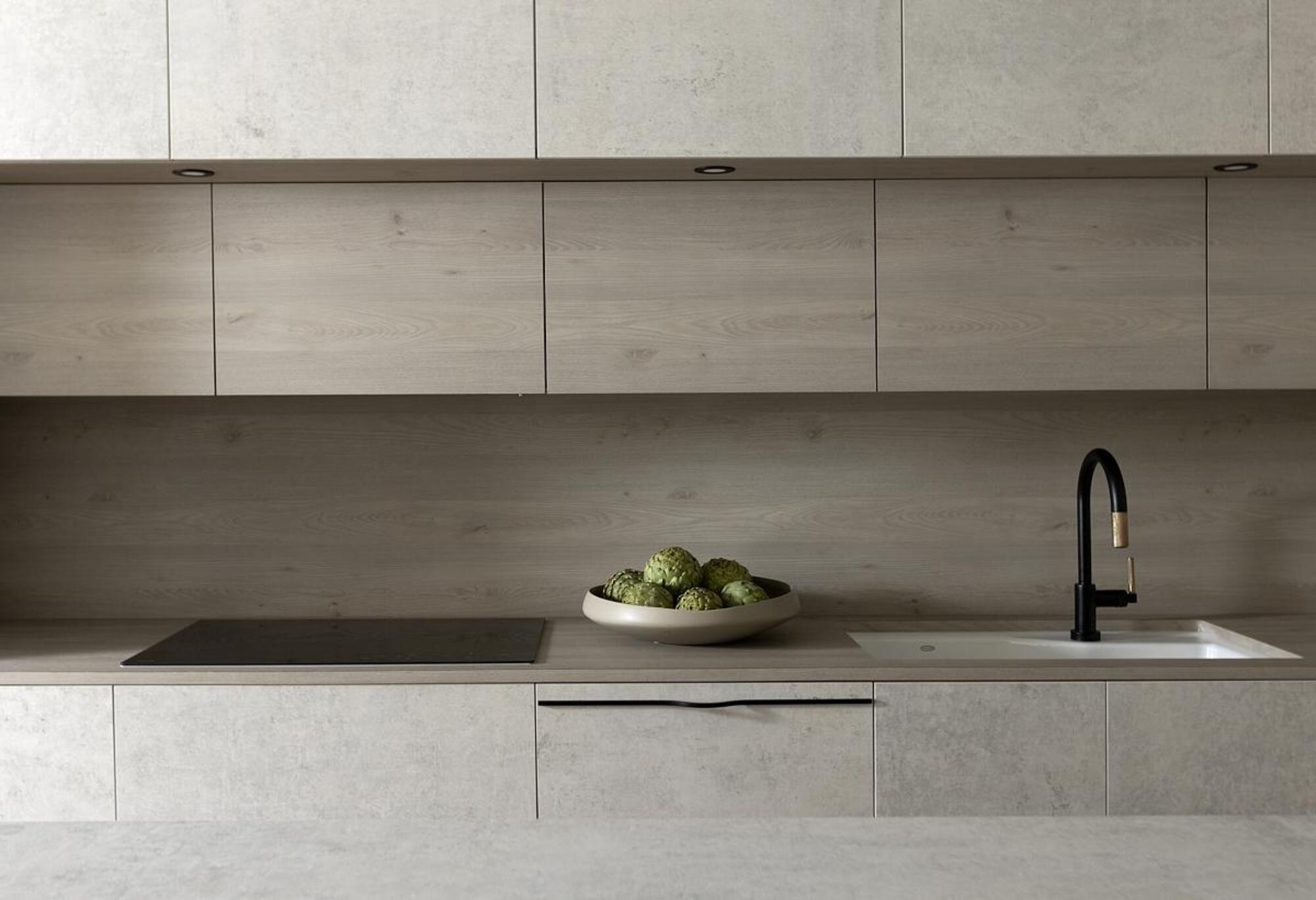
To avoid the danger that wood backsplash imposes, you can break up the wood backsplash with tiling by your burners instead. For the budget-conscious, easy-to-clean laminate backsplashes are simple to fit, easily cut, and available in a range of effects, from wood to concrete for a more modern aesthetic.
In this case (above), Schedio Spaces used a wood-like material facade. 'The cabinet fronts are all made of solid Dekton – a manmade stone that while costly, is nearly indestructible and incredibly childproof.
'This created the base in which we inset the countertop, backsplash, and surround, all made in a wood-like material. I worked with a local company to custom manufacture this high-impact, one-of-a-kind laminate, specifically for this project. It’s nonporous, fingerprint-resistant, and antimicrobial.
'It offers a matte finish which has a beautiful hand-feel resembling real wood but because it’s manmade, it’s not subjected to the same expansion and contraction of natural wood, making it an exception choice for this application,' adds Romy.
3 treatments for your wooden kitchen
Be The First To Know
The Livingetc newsletters are your inside source for what’s shaping interiors now - and what’s next. Discover trend forecasts, smart style ideas, and curated shopping inspiration that brings design to life. Subscribe today and stay ahead of the curve.

Former content editor at Livingetc.com, Oonagh is an expert at spotting the interior trends that are making waves in the design world. She has written a mix of everything from home tours to news, long-form features to design idea pieces, as well as having frequently been featured in the monthly print magazine. She is the go-to for design advice in the home. Previously, she worked on a London property title, producing long-read interiors features, style pages and conducting interviews with a range of famous faces from the UK interiors scene, from Kit Kemp to Robert Kime. In doing so, she has developed a keen interest in London's historical architecture and the city's distinct tastemakers paving the way in the world of interiors.
-
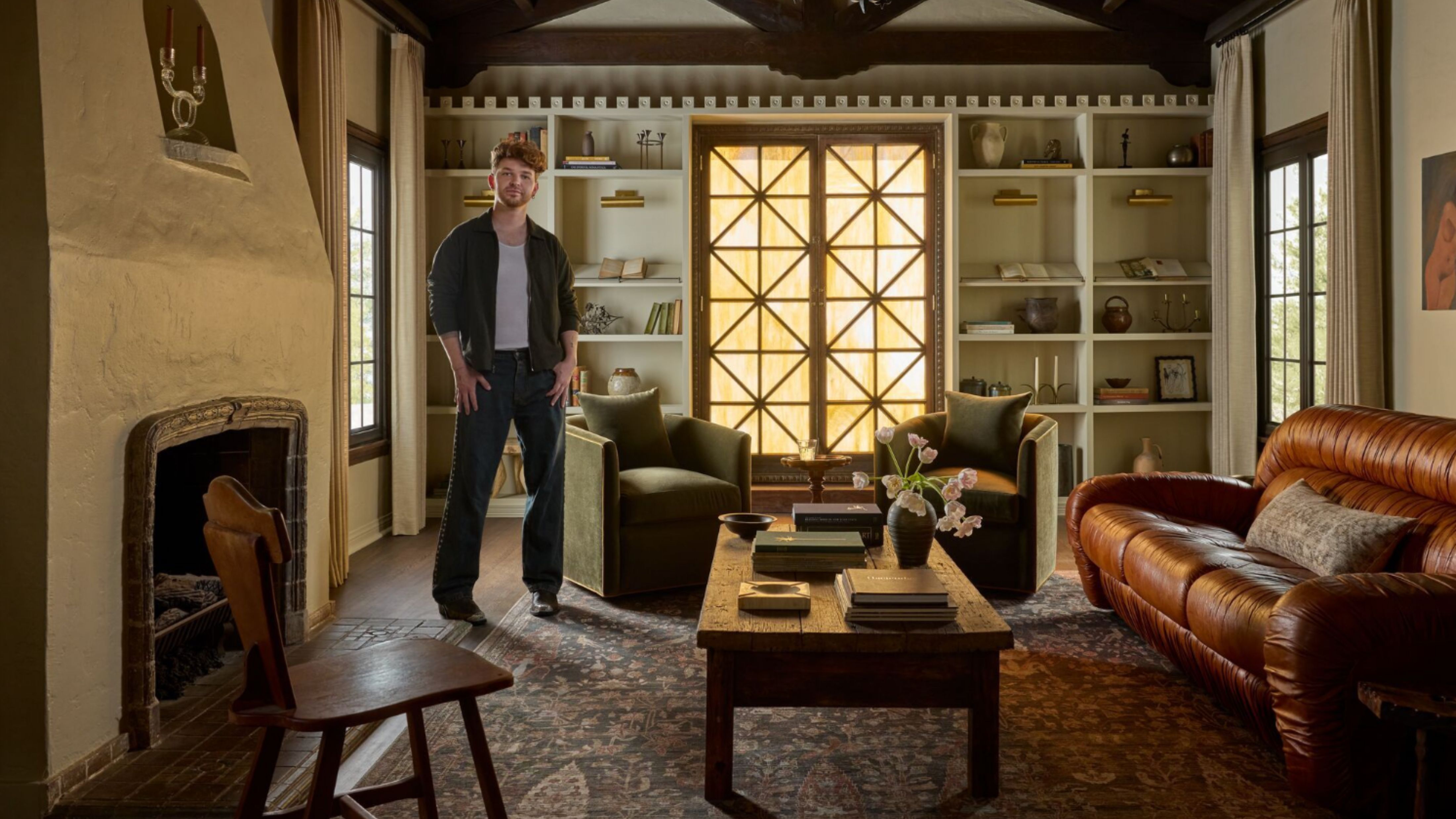 Lone Fox's Drew Michael Scott Drops a Vintage Capsule with Joon Loloi (And Some Seriously Good Tips For Thrifting Antiques)
Lone Fox's Drew Michael Scott Drops a Vintage Capsule with Joon Loloi (And Some Seriously Good Tips For Thrifting Antiques)Sourced straight from one of the world's biggest antique shows, Drew shares how to stay sane, cut through the noise, and score what you actually want
By Julia Demer Published
-
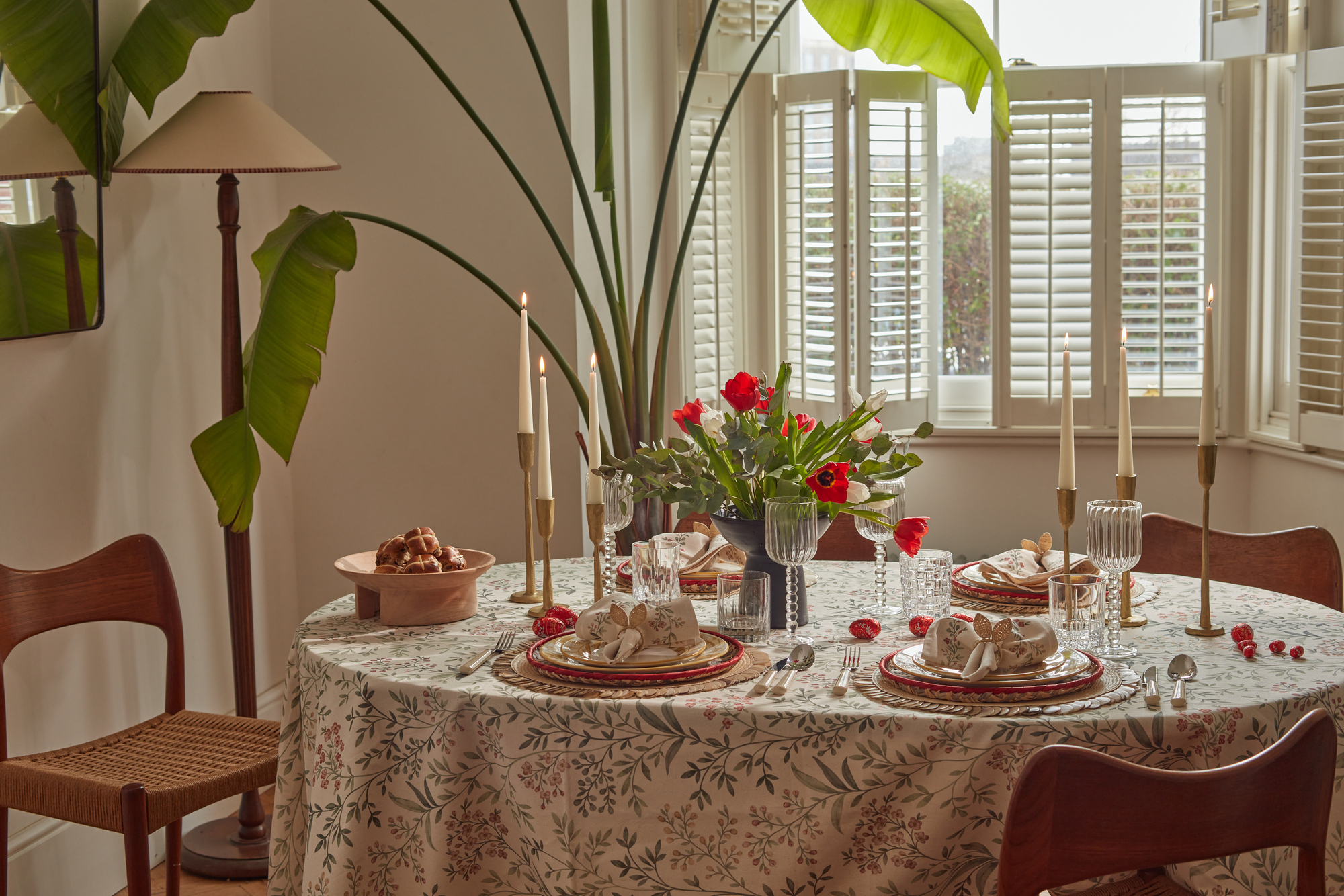 9 Easter Table Decor Ideas to Plan Now for Perfect Tablescapes This Season
9 Easter Table Decor Ideas to Plan Now for Perfect Tablescapes This SeasonFrom centerpieces and color schemes to tablecloths and seasonal themes, let these designer-approved ideas inspire your table styling this Easter
By Lilith Hudson Published
